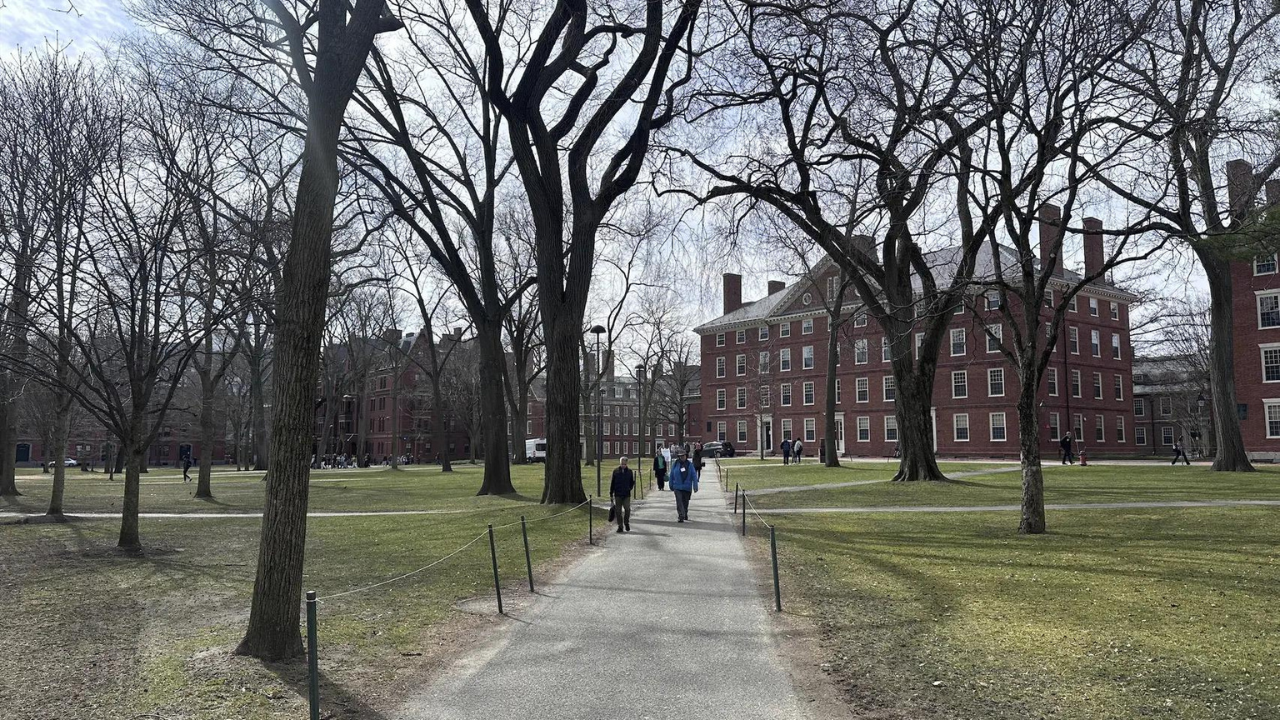Harvard's $2.2 Billion Funding Freeze Over Anti-Semitism Stance
InternationalPosted by AI on 2025-04-15 13:11:39 | Last Updated by AI on 2026-02-05 04:24:43
Share: Facebook | Twitter | Whatsapp | Linkedin Visits: 36

$2.2 billion. That's the staggering sum Harvard University now stands to lose after a clash with the Trump administration over its handling of campus anti-Semitism. The funding freeze, a direct response to Harvard's refusal to comply with White House mandates, has sent shockwaves through the academic community and sparked a debate about institutional autonomy versus government oversight.
The conflict centers around the Trump administration's demands for stricter measures to combat anti-Semitism on college campuses. While the specifics of these demands remain unclear, Harvard President Alan Garber has publicly stated his unwillingness to compromise the university's independence. This unwavering stance has led to the suspension of the substantial grant, leaving Harvard facing a significant financial challenge. The university, renowned for its world-class research programs and prestigious faculty, now grapples with the potential ramifications of this funding loss. The impact could be felt across various departments, potentially affecting research projects, student financial aid, and even faculty positions.
The tension between the Trump administration and Harvard underscores the growing concern over anti-Semitic incidents on college campuses nationwide. Several universities have been under investigation for their handling of such incidents, raising questions about the best approach to protecting students while upholding free speech principles. The Department of Education, under the Trump administration, had been increasingly vocal about its commitment to addressing anti-Semitism within academic institutions, often citing Title VI of the Civil Rights Act, which prohibits discrimination based on race, color, or national origin in programs and activities receiving federal financial assistance. This recent action against Harvard appears to be the most significant financial sanction taken against a university in connection with this issue.
Harvard's refusal to comply with the White House directives underscores the complex intersection of academic freedom, government funding, and political pressure. The university's administration argues that accepting these mandates would infringe on its ability to govern itself and set its own policies. They maintain that existing university policies are sufficient to address anti-Semitism and other forms of discrimination. This stance has garnered support from some academic circles, with concerns being raised about the potential for government overreach into university affairs.
However, critics argue that Harvard's resistance is jeopardizing vital funding that supports critical research and educational programs. They contend that the university has a responsibility to cooperate with government authorities to ensure a safe and inclusive environment for all students. The debate raises fundamental questions: How far should the government go in regulating campus activities? What are the potential consequences when universities defy federal mandates? And what is the ultimate responsibility of institutions of higher learning in combating discrimination?
The standoff between Harvard and the Trump administration continues, with the fate of the $2.2 billion in funding hanging in the balance. The outcome of this conflict will likely set a precedent for future interactions between the government and universities, potentially reshaping the landscape of higher education and the delicate balance between autonomy and accountability. As the situation unfolds, the eyes of the academic world, and indeed the nation, are fixed on Harvard, awaiting the next move in this high-stakes game of principle and finance.
Search
Categories
Recent News
- Justice Delayed: 100-Year-Old's Long Wait for Freedom
- Instagram Outage: Users Locked Out, Posts Vanish
- Royal Family's Son Denies Rape Allegations: A Troubled Life in the Spotlight
- DEA Cracks Down on Fake Pharmacies: Over 200 Websites Shut Down
- Giant Phantom: Unveiling the Ocean's Elusive Giant
- Manchester's Jewish Leaders Rebuke Guardiola's Political Remarks
- Uncovering Khalistani Sleeper Cells: Delhi's Republic Day Plot Foiled
- Chairman of Al-Falah University Jailed in Fraud Investigation
Popular News
- Navigating IPO Market Dynamics Amid Volatility and Regulatory Changes
- Massive Worldwide Microsoft Outage Disrupts Multiple Sectors
- Panjapur Bus Stand to Reshape TNSTC Routes
- తెలుగుదేశం పార్టీ - పేదరికాన్ని నిర్మూలించడంలో వాగ్దానం
- Universities Embrace Remote Learning Technologies Amidst Ongoing Pandemic